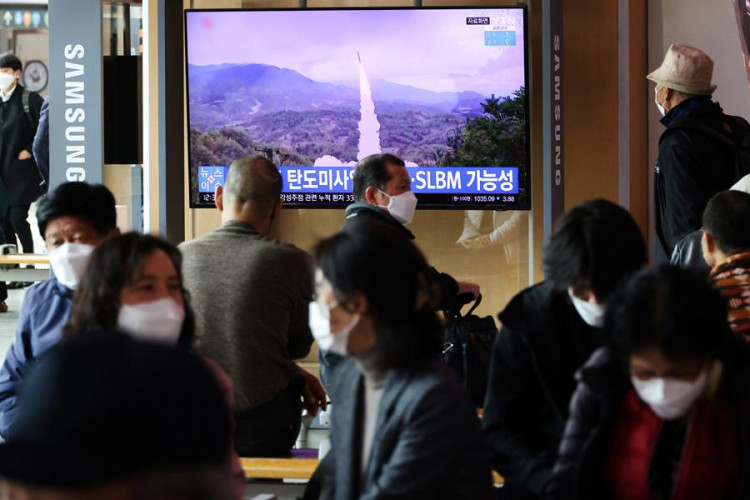After the United States redeployed an aircraft carrier near the Korean Peninsula in reaction to Pyongyang's earlier firing of a nuclear-capable missile over Japan, North Korea launched two short-range ballistic missiles Thursday toward its eastern waters- the sixth such banned launch in less than two weeks.
The latest missiles were fired 22 minutes apart from the capital area of the North and landed between the Korean Peninsula and Japan, according to a statement from the Joint Chiefs of Staff of South Korea.
The first missile traveled 350 kilometers (217 miles), topping out at an altitude of 80 kilometers (50 miles), and the second missile traveled 800 kilometers (497 miles) with an apogee of 60 kilometers (37 miles).
The most recent missile launches indicate that North Korean leader Kim Jong Un is determined to keep conducting nuclear weapons testing in violation of international sanctions. Despite the fact that the international community has shown no signs of allowing it to happen, many experts claim Kim's ultimate objective is to obtain U.S. recognition as a legal nuclear state and the ease of those sanctions.
The missiles' failure to enter Japan's exclusive economic zone was confirmed by Defense Minister Yasukazu Hamada, whose evaluations were consistent with the flight information.
The second missile may have been launched on an "irregular" trajectory, he continued. It is a word that has previously been used to describe the flight characteristics of a North Korean weapon that was based on the Iskander missile from Russia. This missile flies at low altitudes and is made to be agile while in flight to increase its chances of avoiding missile defenses.
On Wednesday, Pyongyang hailed its recent offensive as "just counteraction measures" in response to joint military exercises between the U.S. and South Korea. Pyongyang launched a missile over Japan on Tuesday, which prompted the US to convene an emergency meeting of the UN Security Council. The U.S. charged at the meeting that Russia and China were shielding the North from harsher penalties.
The U.S. ambassador to the UN claimed that Moscow and Beijing had provided Pyongyang with "blanket protection" by resisting more measures. Increased communication, according to the Chinese and Russian representatives, is preferable to punishment.






